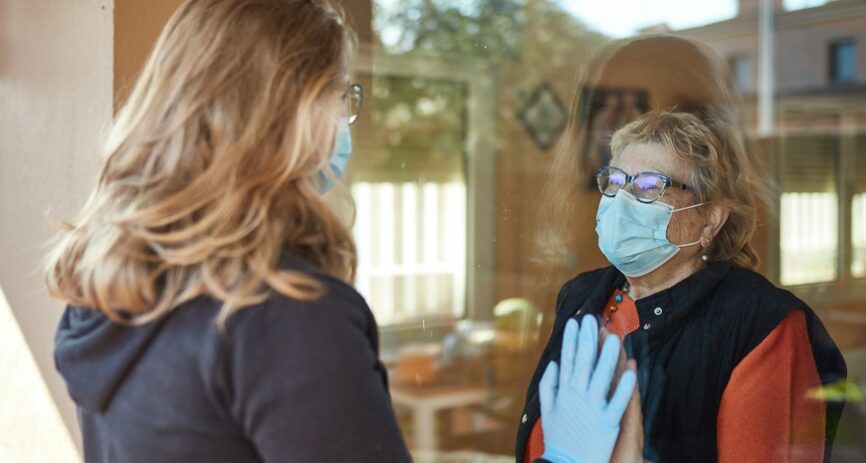
4 strategies for caregivers of elders during these uncertain times
Are you a caregiver for an older loved one? Even under normal conditions, you face challenges every day. But during these unprecedented times, when elders are at high risk of getting sick and being isolated, you face extra trials as you strive to provide safe and compassionate care for your senior, while also taking care of yourself.
Washington National is here to help with the following four strategies for caregivers of elders.
1. Seek balance & ask for help
Chances are you wear many hats. In addition to being a caregiver to an older loved one, you may also have children, a home and a full-time job. If you try to juggle it all 100% of the time, you’ll quickly get burned out and become ineffective in one or more areas.
The key to seeking balance is to ask others for help. Who else can be on your caregiving team? Whether it’s family members, neighbors, church members, friends or professionals, you may be amazed at what other people will do to help out. When you tap into others to help with the day-to-day tasks needed to keep your elder afloat, you’ll have more capacity for managing your responsibilities.
You should also have a team in place to call on in the event you become ill and must quarantine away from your older loved one for a period of time. Make sure there’s a strategy for ensuring the physical, social, emotional and spiritual needs of your elder are met while you’re on the mend.
2. Stay informed
Things are rapidly changing, and it’s especially crucial to stay in-the-know when you’re caring for an at-risk individual, such as an older loved one. Stay up-to-date on what leaders are recommending and what resources are available to you. Get information from reliable sources, but also be sure to limit your exposure to news and social media to about 30 minutes a day. 24/7 information overload can be stressful and negatively impact your mental health.
3. Remember self-care
Chances are you’ve heard the mantra to put on your own oxygen mask before helping others. This is important for caregivers like you because practicing self-care gives you the capacity to care for others. Here are a few strategies to help you stay well during these unprecedented times:
- Eat well and limit sugar, caffeine and alcohol.
- Get exercise, even if you can only find 15 minutes at a time to get moving. Even light exercise helps release mood-boosting endorphins.
- Get support for yourself. Look into online support groups for caregivers, which can help connect you with others who are facing the same challenges.
- Take time every day for things you enjoy that have nothing to do with caregiving. Whether it’s gardening or reading, it’s important for you to have something fun to look forward to.
- Have friends and connections who will be there for you when you need a shoulder to cry on or a good laugh, or when you’re just running low on energy.
4. Stay positive & be patient
During this challenging time, it’s important to be kind to yourself and others, and to give grace. Your older loved one may not understand why all of the precautions are necessary, which could lead to disagreements and stress. Be patient with him or her (and yourself!) as you navigate these unchartered waters.
On the hard days, remind yourself and your elder that this situation is temporary. Don’t get caught up in the negativity—because things will get better.
We’re here for caregivers like you
We hope these four tips help you manage your caregiving challenges during these unprecedented times. Remember that Washington National is here for you. Visit our website here to discover all the ways we’re currently supporting our customers, associates, agents and partners.
Source: Health Advocate, Caring for the Caregiver During the Pandemic, https://www.healthadvocate.com/video/CaringForTheGaregiverWebinar_20190414.html, 2020.
